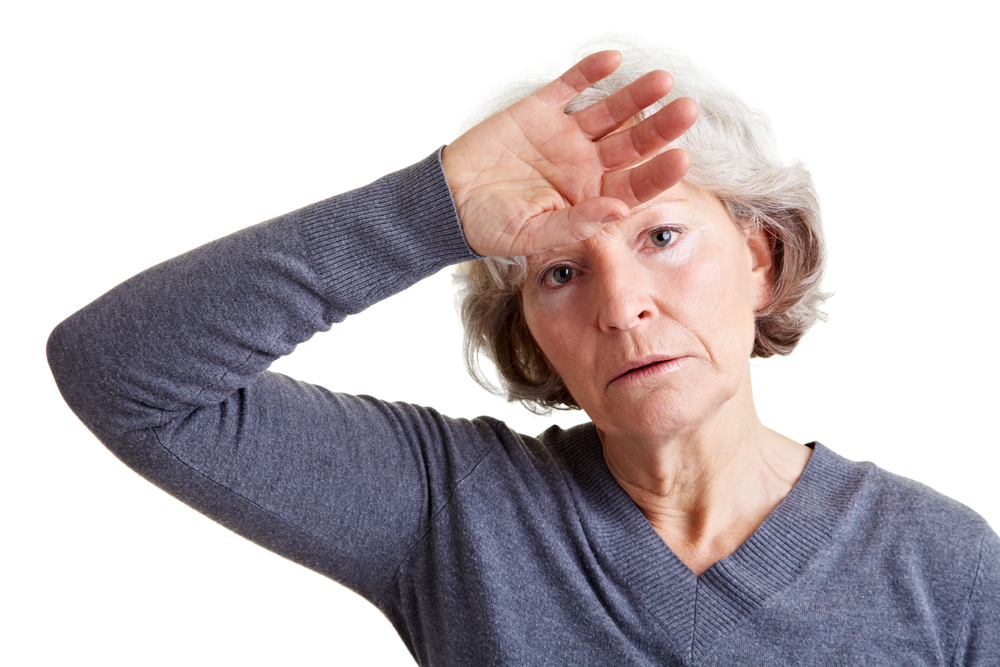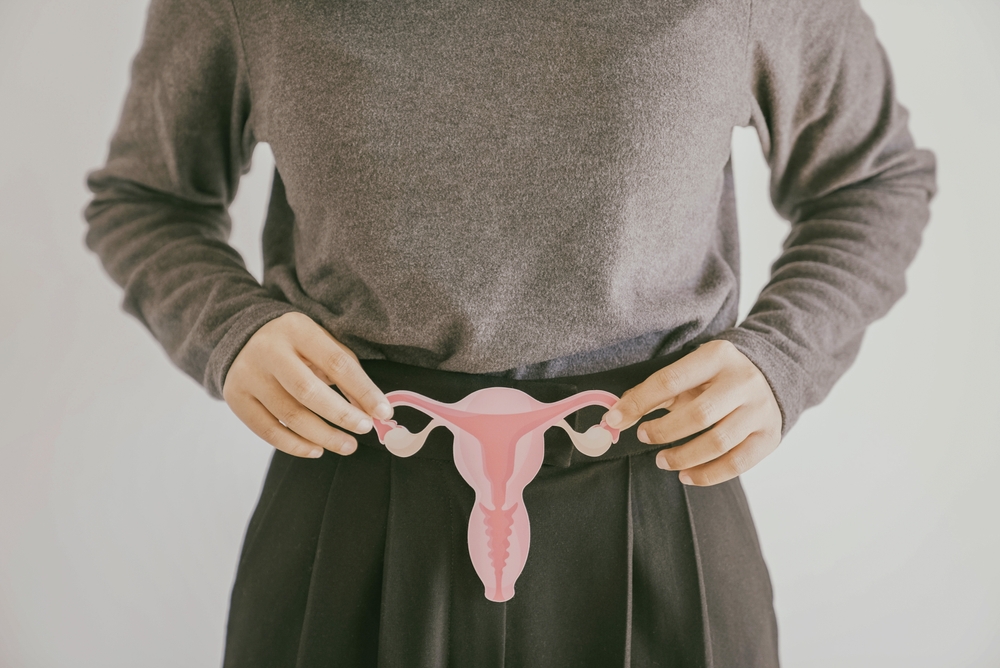Top 10 Questions about Perimenopause Answered
Am I in perimenopause? It’s often the question women pose to their ob-gyn when they begin to notice changes in their monthly period or have their first hot flash.
Two million women enter menopause each year in the U.S. alone. So why do women in their late thirties and early forties have trouble getting answers about what’s going on with their bodies? It’s SO frustrating.
But take heart. You’re not alone.
I want you to know…
Your body is a miracle. Perimenopause is a natural and normal process.
Information is power. You can navigate perimenopause through factors within your control.
You can find relief now. What you’re going through will not last forever.
Let’s dive into your most common questions…

- What’s the difference in perimenopause and menopause? As both impact a radiant life.
Perimenopause is like being engaged to menopause. It’s the phase before you’re fully in menopause and may last for 4 to 8 years. It begins with changes in the length of time between periods and ends one year after the final menstrual period.
Menopause is officially a point in time when you’ve gone 12 consecutive months without a period. It happens at age 51 on average, according to the Mayo Clinic.
Induced menopause is when a woman’s menstrual periods end because of removal of both ovaries or cancer treatments such as chemotherapy or pelvic radiation.
Postmenopause is the years after your last period. Hormonal shifts and issues such as hot flashes or sleep problems may continue. Many women are surprised to find that this is also a potent time of renewed creativity, intuition, and sense of purpose.
Are you wondering if you’re too young to be in menopause?
2. What’s the “normal” age for menopause?
Dr. Stephanie Faubion, Mayo Clinic physician and author of The Menopause Solution asserts, “If you reach menopause before age 40, that is considered premature menopause, and this occurs in about 1 to 2 percent of women. Experiencing menopause at 40 to 45 years of age is called early menopause, and that occurs in about 5 to 7 percent of the population.” Menopause at age 46 or older is considered normal, she says.
3. How do I know if I’m in perimenopause?
- Are you having any of these common, normal signs? Irregular periods, hot flashes, vaginal dryness, sleep disturbances, or mood swings are all associated with unevenly changing estrogen levels in your body.
- What’s your age? The typical age for perimenopause is in your late thirties or early to mid-forties.
- Black and Latina women may begin perimenopause earlier, according to the Study of Women’s Health Across the Nation (SWAN).
ACTION STEP: If you suspect you’re in perimenopause, you can usually confirm this by a review of your medical history, menstrual history, along with any symptoms you’re noticing.
Monitor the changes. Keep track of what’s going on with your body, mind, and emotions: menstrual patterns, hot flash patterns, and mood swings. Using a calendar or an app such as Menolife will make it easier to give your healthcare provider details that may be hard to remember.
Unless you’re in the 20% of women who experience no symptoms during perimenopause, you probably have at least one of these common complaints…’
4. Why do I feel so tired and unmotivated?

Your metabolism naturally slows down in perimenopause and menopause. Here’s how to rev it up…
- Eat at the same time every day. You’re letting your body know to expect fuel at regular intervals so it won’t store fat.
- Strength training, or a weight-resistance exercise program, helps build muscle mass and improve metabolism. Jump rope or use 2-5 pound weights on arms/legs when you walk.
- Eat more fiber: 40 grams daily increases metabolism by about 100 calories a day. Lentils, broccoli, berries, carrots.
- Your Vitamin D is too low
If you shun the sun and feel tired and unmotivated it could be because you probably do not have enough vitamin D in you – and your body is “starving” for it. As a matter of fact, 85% of menopausal woman are Vitamin D deficient. If you spend a lot of time indoors or limit sun exposure because of skin concerns, one simple way to get more Vitamin D in your life is:
Take a daily Vitamin D supplement (2,000-5,000 mg) in which Omega-3 and Vitamin K* are combined with D. This combination can make a world of difference in how you feel. *If you’re taking blood thinners, check with your health care professional before taking Vitamin K.
5. Will I ever sleep through the night again?
Between mood swings and the 3 am hamster wheel of worry, it’s no wonder we feel exhausted. The #1 way to get your energy back is to get the sleep that restores your body, mind and spirit.
How much “bad stress” are you dealing with? This includes illness, accident, debt, divorce, losing contact with loved ones, or being a long-term caregiver.
Bad stress is the kind that wears you out, leaves you jittery and is harmful to your health.
- 5 tips to help you sleep
- Avoid caffeine and alcohol after 3pm
- Calming teas: Bedtime Tea (Yogi Teas), chamomile, valerian
- Avoid caffeine and alcohol after 3pm
- Try natural sleep aids
- Calm – magnesium powder (the raspberry-lemon is yummy)
- Essential oils – lavender, ylang-ylang, cedarwood
- Make sure your bedroom encourages sleep
- Comfortably cool temperature, year-round
- Dark as possible or wear an eye mask
- Quiet room or wear earplugs
- Put phone on airplane mode
- Get on a schedule
- Eat a small high-protein snack 1 hour before bedtime
- Take a shower or bath
- Read a book (not the news)
- Set an intention for a restful night
- Set a regular sleep and wakeup time
- Use an app to help you relax and stay asleep:
- 6. What are natural ways to control hot flashes and night sweats?

The subject of menopause management is a tricky one. Many people treat hormone replacement therapy (HRT) as the only cure for menopausal issues. But many women find relief for their symptoms by taking natural supplements or making lifestyle changes.
Studies show that women who smoke cigarettes report more intense hot flashes and night sweats. So yes, do what it takes to stop smoking.
And here are two hormone-and-estrogen-free solutions to ease hot flashes and night sweats:
1) Me.No.Pause by Womaness was created by women for women and is supported by doctors and clinical research. https://womaness.com/collections/menopause-hot-flash-relief-and-night-sweat-relief/products/me-no-pause
2) Femmenessence MacaLife for Perimenopause is an herbal supplement that addresses the root cause of perimenopause issues and is backed by clinical trials. https://femmenessence.com/products/macalife?variant=18672201531454¤cy=USD&utm_medium=product_sync&utm_source=google&utm_content=sag_organic&utm_campaign=sag_organic&gclid=Cj0KCQjwspKUBhCvARIsAB2IYuu8nMGu3o_j6-jsz9KPBk42kNnmTHXSSrF6m-itIHuqkbXfpw8sZQMaAiigEALw_wcB
Did you know that cortisol, the “bad stress” hormone that keeps you awake, also causes belly fat?
7. Why am I gaining weight around my middle?
When you live a high-stress life, cortisol levels stay high. This leads to an urge to eat. You may find yourself consuming large amounts of food without noticing it. The excess calories from all that food get stored in the belly and abdominal fat is related to health issues, including greater risk of heart disease and diabetes.
- The best thing you can do to prevent overeating is to eat regularly planned meals. Aim to eat a small meal or snack every two to four hours to keep your cortisol levels from spiking.
- Reduce inflammation. Super-foods such as coffee, green tea, dark chocolate, avocados, berries, a variety of colored vegetables, leafy greens, fish, and legumes all help fight belly fat.
- Create stress management habits. You want to keep your brain from releasing more cortisol. Healthy habits such as deep breathing, meditation, and exercising all help lower stress levels.
- 8. What foods should I eat or avoid when I’m in perimenopause?

As we enter our forties and progesterone levels decline, we need a balance of foods that rebuild the progesterone in our bodies. If you’re restricting carbs as a way to lose weight, think again. A low-inflammatory eating plan that includes “good carbs” (listed below) will help prevent hair loss, anxiety, and insomnia.
- Foods to eat
- Good carbs:
- Legumes (chickpeas, green peas, black beans, lentils)
- butternut and other hard squashes
- citrus fruits
- carrots, beets, and other root vegetables
- wild rice
- quinoa
- purple potatoes
- Good fats: avocados, coconut oil, olive oil, eggs, salmon, nuts, and seeds
- Good carbs:
- Foods to avoid
- Spicy foods can make hot flashes worse
- Highly refined carbs (white bread, pasta, and sugar) cause blood sugar spikes and cravings
- Saturated fats from fast food and fried food increase the risk of heart disease.
- 9. Is hormone replacement right for me?
- According to a 2021 survey by Bonafide (State of Menopause Study), 73% of U.S. women aged 40-65 years were not currently treating their menopause symptoms. 65% of those women said they would not consider hormone replacement therapy (HRT) as a treatment.
- HRT can be an effective option for many women in treating their menopause symptoms, by helping them to replenish some of their depleting hormones. It can take persistence to find the right dosage.
- For women with a history of breast cancer or other medical issues such as migraines, HRT can be out of the question.
10. How can I find the right health provider to help me through perimenopause?
Did you know that only 20% of ob-gyn residency programs provide any kind of menopause training. The good news? The North American Menopause Society (NAMS) has set standards for health providers to provide high-quality care for women entering perimenopause and beyond. To help you find a menopause clinician who is right for you, search for a NAMS Certified Menopause Practitioner here
Disclaimer: This article is intended for informational purposes. The team at Radiant Wise Woman strives to share the knowledge and advice from our own network of experts and our own research. We encourage you to make healthcare decisions based in partnership with a qualified healthcare professional.
Want more support through perimenopause and beyond?
Get my book: Radiant Wise Woman: Breaking Free from the Myths of Menopause and Aging.
#1 Amazon new release – Women’s Health.
Lee Sumner Irwin is on a mission to share her dramatic pro-age vision with women. An award-winning teacher, coach, and international retreat leader with 30 years of experience, she empowers women to unlock new possibilities for feeling vibrant, healthy, and more attractive at any age.
Go to www.radiantwisewoman.com for more fresh insights + tools for enjoying your happiest, healthiest, most fulfilled life!

